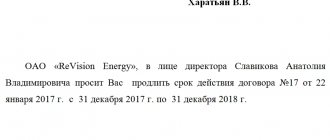Deadline for registration of inheritance
Not everyone is aware of the legal requirements for the inheritance registration procedure. Some turn to a notary within 6 months.
Others believe that it is necessary to accept an inheritance six months after the death of an individual. To avoid confusion, let's consider the existing methods of entering into rights - law/regulation.
Having a will gives a certain advantage to the heirs. Usually the order contains a list of property, the range of applicants and the size of their shares.
The order is drawn up for one or more applicants. And not necessarily from among relatives. The beneficiary can be an individual, an enterprise, or a government agency. The order can be open or closed, simple or conditional. However, regardless of the form and essence of the administrative document, the period for accepting an inheritance under a will is 6 months (Article 1154 of the Civil Code of the Russian Federation). Otherwise, the heirs will lose their advantage.
Sometimes recipients may accept property under both will and law. For example, if other applicants refuse or the heir under the will joins the succession line.
The period for accepting an inheritance by law is also 6 months (Article 1154 of the Civil Code of the Russian Federation). The rule applies to priority beneficiaries. If the testators had children, parents, or a spouse, then they are given the right to claim the property of the deceased. In their absence, the right is transferred to the heirs of the second priority.
In case of notarized refusal of the first-priority recipients, the future applicants accept the property after six months. If the priority heirs simply did not accept the property, then the next legal successors can submit papers within 3 months .
Statute of limitations for accepting inheritance of accounts payable
There are often cases when, in addition to property, persons claiming a share in the inheritance mass are forced to inherit not only material assets, but also debts. The saddest thing is that until a certain point, newly acquired property owners may not suspect anything about debts to third parties or financial institutions. The process of transferring debt obligations to heirs is regulated by the Civil Code.
The person who receives the inheritance is liable for the debt of the deceased testator only to the extent of the total value of the property received. The lender has no right to demand repayment of the entire debt if it is higher than the total value of the inherited property.
All heirs who received material assets from the deceased testator and have the appropriate document must repay debts. The statute of limitations for debt collection in these cases ranges from three to ten years. When there is a bank loan, the debt repayment schedule may be the same as that set by the bank. The heirs are required to follow the bank payment schedule and repay the debt in stages.
Reasons for missing deadlines
The main reasons for late acceptance of inheritance
| No. | Cause | Comments |
| 1 | Lack of direct contact with the testator | Often relatives do not communicate with each other due to long-standing grievances or personal hostility. Sometimes the reason for lack of contact is distance - living in different regions or different countries. |
| 2 | Living or studying abroad | One option is a foreign business trip. A long stay outside the country does not always allow you to find out in a timely manner or take the necessary actions to accept property. |
| 3 | Long-term treatment | The heir may undergo long-term inpatient treatment. For example, with an open form of tuberculosis or in a psychiatric clinic. |
| 4 | Serving a sentence in prison | This is a fairly common reason for missing deadlines. However, sometimes courts refuse to satisfy plaintiffs' claims. |
| 5 | Acceptance of inheritance after the fact | Often, relatives of the testator submit an application after the allotted period has expired. If they cannot provide conclusive evidence of actual acceptance of the property, they will have to go to court. One of the points of the claim is a request for an extension of the deadline. |
| 6 | Concealment of a will by relatives | The testator can deprive family members of their property and assign it to a third party. However, if he does not hand over the will during his lifetime, then the relatives may subsequently hide the document from the applicant. |
| 7 | On the day of death of the testator the applicant was a minor | Typically, legal representatives act in the best interests of children. However, they may not always know about the existence of an inheritance. If a child, after reaching adulthood, becomes aware of a violation of his rights, then they can be restored through the court. The exception is the situation when a citizen deliberately did not enter into an inheritance in order to receive other material benefits. |
| 8 | Military service | The court will accept military service as a valid reason if the citizen served in another city and could not transfer authority to a representative. |
To restore the deadline, you must go to court (Article 1155 of the Civil Code of the Russian Federation). However, the law does not establish a list of reasons that will be considered valid.
When making a decision, the court proceeds from the specific situation. The burden of proof lies with the applicant.
The process to reinstate the deadline is complex. Therefore, it is advisable to hire a competent lawyer.
Shift of base dates
In addition to basic situations, the law contains a description of non-standard cases.
Grounds for shifting deadlines
| No. | Base | Comments |
| 1 | Death of an heir | If the heir dies during the paperwork process, the succession passes to members of his family. The time limit for submitting an application to a notary will be calculated based on the remaining time until the completion of 6 months from the date of death of the owner. |
| 2 | Presence of a conceived child | In fact, the deadline for issuing a certificate is shifted by no more than 3 months. The birth of a child is the basis for including him among the heirs. Even if the testator assigned the property to other persons, the minor child is entitled to an obligatory share. |
| 3 | Actual acceptance of ownership | The beneficiary can submit papers at any time. The only condition is that the applicant must provide papers that indisputably confirm the acceptance of the property. If he cannot justify the actual entry into the inheritance, the notary will not issue a certificate. The applicant will have to prove his case in court. |
| 4 | Agreement between heirs | The law does not establish fixed deadlines. If the applicant can agree with his relatives to include him among the recipients, then the law allows him to cancel the certificate, recalculate the shares and issue new papers to the participants. The basis for resumption of the inheritance case is the written consent of the heirs. |
Example. If the applicant died after 2 months , then his heirs submit an application during the remaining period. If the applicant died after 4 months , then the time frame for registering the inheritance increases. The heir's relatives are given another 3 months .
Is there a statute of limitations for entering into inheritance?
The statute of limitations for entering into an inheritance is 6 months . Upon expiration of the period, the recipient loses the opportunity to acquire the property of the deceased. The right is transferred to the next recipient.
In the absence of relatives, spouse and dependents, the right to accept the property of the deceased owner is transferred to the state (escheat).
If heirs are identified after the specified period, the recipient must confirm his rights in court. A claim may contain one or more claims. For example, I ask you to extend the period for accepting an inheritance and/or recognize ownership.
Is it possible to challenge the decision?
The legislation of the Russian Federation provides for the possibility of challenging an inheritance.
So, in order to recognize the issued certificate as invalid, the following reasons are distinguished:
- irregularities in paperwork;
- an incorrectly drawn up will;
- revealing the heir's unworthiness;
- establishing new facts about the testator’s activities;
- identification of new persons claiming inheritance;
- Obviously, this is not a complete list of reasons that are considered sufficient for going to court to challenge an inheritance case.
The trial includes the following procedures:
- evidence of a family or marital relationship with the deceased;
- establishing the fact of cohabitation with the testator;
- confirmation of actual acceptance of property;
- extension of the time frame for entering into inheritance.
If there are several applicants, then they can come to an agreement to pay some compensation in favor of one of the heirs for abandoning their share. In this case, mandatory notarization of such a procedure will be required. Moreover, the registration must be carried out in written format.
As judicial practice shows, this aspect is often not fulfilled. In this regard, the Government has developed the possibility of restoring such a time frame to ensure the protection of the interests of citizens who, for good reason, were unable to immediately issue a certificate or challenge the right to it.
To exercise rights, you must correctly install
time of opening of inheritance
Find a sample application for actual acceptance of inheritance here.
If you missed the deadline for accepting an inheritance, see what to do in this publication.
What is the statute of limitations for entering into inheritance?
The general statute of limitations is 3 years . The countdown begins from the moment the citizen became aware of a violation of his rights.
The maximum limitation period is 10 years from the date of death of the owner. If a citizen learns of a violation of his rights after the expiration of the period, the court will refuse to satisfy the demands.
Example. The plaintiff went to court. The woman asked to extend the period, recognize ownership of part of the property and cancel the certificate. Facts of the case: After the death of the testator, the inheritance opened. He was accepted by the daughter of a deceased woman. The plaintiff knew about the death of the testator and was at the funeral. But she did not declare her rights within the allotted time. The woman went to court almost 2 years after her mother’s death. The plaintiff believed that the testator left a will in the name of her sister. That's why I didn't apply. She also lived remotely from her mother and was periodically ill. Court decision: The court regarded the arguments presented as untenable. The court of first instance rejected the claim. The woman filed an appeal. The panel of judges rejected it too. (Determination of the judicial panel of the Supreme Court of Komi dated 04/09/2012 No. 33-1294 AP/2012).
There are special requirements regarding missed deadlines. An application for their restoration must be submitted within 6 months after the citizen learned of a violation of his rights.
The countdown begins from the moment the reason for the omission disappears. For example, if the beneficiary was on a business trip abroad, then the calculation of the time period begins from the day of crossing the Russian border. The heir will need to provide documents to the court confirming the date of departure and return to the country.
Deadline for accepting inheritance
The limitation period for inheritance cases depends on the reasons for which the citizen did not timely declare his claims to the inheritance. Thus, the procedure for receiving property after the death of a close relative implies that the potential heir must independently contact a notary operating in the area of residence of the testator with an application to open an inheritance. Such a statement is evidence of a voluntary initiative to become the owner of property. Each heir must apply independently and collective applications are not allowed.
Next, the necessary documents are collected, on the basis of which the notary checks the legality of the transfer of property to a specific applicant, and also prepares a resolution to enter into inheritance rights. If within six months from the date of death of the testator the potential heir has not submitted an application or has stopped the procedure for preparing documents, then the lawyer regards this as a voluntary renunciation of property. Therefore, all claims to inheritance are lost.
If the failed heir wishes to accept the inheritance, then you need to take into account the statute of limitations and contact the local branch of the court. Such disputes are subject to consideration in the magistrate's court at the place where the inheritance case was opened. The petition must contain a detailed description of the reasons that influenced the missed legal deadlines. Depending on whether the reasons were compelling will determine whether the judge will grant the request.
Limitation period for inheritance of real estate
The law does not contain significant differences by type of property. When filing an application, the general/special limitation period is taken into account.
The choice of legal norm depends on the life circumstances of the heir. If the applicant missed the deadline due to a long illness or business trip, then the papers must be submitted within 6 months after recovery or end of the business trip.
If the recipient becomes aware of a violation of his rights, then he can file a claim within 3 years . For example, if the relatives of a deceased subject hid information about the existence of a will from the applicant and accepted the inheritance in his place. The presence of evidence is the basis for restoring the terms and canceling the certificate issued to him.
If the applicant has accepted the property after the fact, then there is no specific statute of limitations. In this situation, the citizen does not restore the deadline for accepting the inheritance, but establishes the actual acceptance of the inherited property (Article 1153 of the Civil Code of the Russian Federation).
The nature of the limitation period in inheritance cases
During the period allotted for the division and registration of inherited property, the leading role in organizing the process is given to the notary. The quality of the distribution of the hereditary mass largely depends on his actions, after which no controversial issues will arise. The invalidation of documents in judicial practice is often caused by the negligent attitude of officials to notify relatives.
Within the limitation period, there are cases of collision within the same authority. When separating the concepts of legal and actual inheritance, the second process is the judicial determination of the right to inheritance.
The actual entry into the inheritance is confirmed by the following documents:
- Spending your personal funds (fees, legal services, utility bills) for the maintenance of the inheritance;
- Payment of the deceased's obligations from personal funds;
- Receiving funds from an inheritance;
- Registration of ownership rights to the property of the deceased.
During such proceedings, the court re-checks the absence of other applicants. After such a decision, restoring your rights will be extremely problematic.
about the author
In 2000, he graduated from the Faculty of Law of the National Research University Higher School of Economics. She has been working in the legal field for 16 years, specializing in resolving housing disputes, property transactions, family matters, inheritance, land disputes, and criminal cases.







